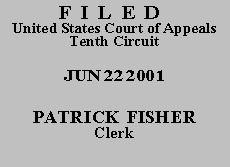

| UNITED STATES OF AMERICA,
Plaintiff-Appellee, v. MARCO ANTONIO ARREOLA-NAJERA, Defendant-Appellant. |
|
Defendant Marco Antonio Arreola-Najera pleaded guilty to two counts of possession with intent to distribute 500 grams or more of methamphetamine, in violation of 21 U.S.C. §§ 841(a)(1) and (b)(1)(A), and one count of conspiracy to possess with intent to distribute 500 grams or more of methamphetamine, in violation 21 U.S.C. § 846. He was sentenced, inter alia, to 262 months' imprisonment. On appeal, he challenges only the district court's determination of his sentence. He argues that the court erred in not departing downward because of the low purity of the drugs involved in his crimes, which he contends is permitted by United States Sentencing Guidelines § 2D1.1, comment. (n.9). Mr. Arreola-Najera acknowledges that this court generally lacks jurisdiction to review a sentencing court's denial of a downward departure, but contends his situation falls within an exception to the general rule because the court misinterpreted the guidelines as prohibiting a departure. See, e.g., United States v. Fortier, 180 F.3d 1217, 1231 (10th Cir. 1999).
Note 9 to § 2D1.1 states that upward departures may be warranted for trafficking drugs of unusually high purity, although methamphetamine is specifically excluded. Mr. Arreola-Najera argues that the opposite consideration should also apply even if the drug involved is methamphetamine; i.e., that a downward departure may be warranted for drugs of particularly low purity, which he contends was the case here. We note that the circuits are split on whether note 9 permits a downward departure. Compare United States v. Mendoza, 121 F.3d 510, 513, 515 (9th Cir. 1997) (holding that note 9 does not preclude downward departure where defendant had no control over or knowledge of the high-level purity of methamphetamine involved); with United States v. Beltran, 122 F.3d 1156, 1159-60 (8th Cir. 1997) (holding that district court did not have authority to depart downward under note 9 based on low purity of methamphetamine involved in case); and United States v. Upthegrove, 974 F.2d 55, 56 (7th Cir. 1992) (holding that note 9 did not authorize downward departure based on drug purity). This circuit has not resolved the issue.
As we have explained before,
[c]ourts of appeals cannot exercise jurisdiction to review a sentencing court's refusal to depart from the Guidelines, either upward or downward, unless the court refused to depart because it interpreted the Guidelines to deprive it of the authority to do so. . . . Equally clear in our circuit . . . is that we treat ambiguous statements by district judges as though the judge was aware of his or her legal authority to depart but chose instead, in an exercise of discretion, not to depart. . . . Accordingly, unless the judge's language unambiguously states the judge does not believe he has authority to downward depart, we will not review his decision.
Fortier, 180 F.3d at 1231 (quotation omitted).
Even assuming the type of departure Mr. Arreola-Najera seeks is legally permissible, he would not be entitled to relief in this situation. After Mr. Arreola-Najera presented this departure argument to the district court, the court said, "Well, you know, with respect to whether it can be done, whether there's jurisdiction to do it, I think there is." R. Vol. 3 at 14. It is clear from this and other statements regarding the departure argument that the court believed it had authority to depart but chose not to do so. We therefore lack jurisdiction to consider the court's departure decision, and the appeal is DISMISSED.
Entered for the Court
Chief Judge
*. This order and judgment is not binding precedent, except under the doctrines of law of the case, res judicata, and collateral estoppel. The court generally disfavors the citation of orders and judgments; nevertheless, an order and judgment may be cited under the terms and conditions of 10th Cir. R. 36.3.